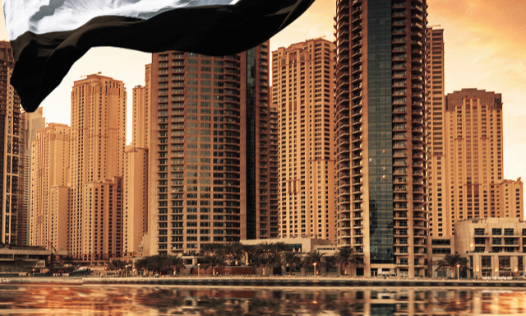Dubai’s Golden Visas are helping the city defy global office slump
At the height of the global pandemic, as Dubai faced an exodus of expatriates and mounting competition from neighbouring business hubs, the government opened up. That decision is now helping the city dodge the commercial real estate crisis rippling across the globe.
The United Arab Emirates — of which Dubai is a part — started to break away from a decades-old economic model that prevails across the oil-rich region, linking residency to employment. Officials widened the eligibility net for long-term ‘golden’ visas, abolished a requirement for companies to have a majority local partner, switched to a Monday-Friday working week and made it legal for unmarried couples to live together.
Policymakers wanted to help Dubai shed its reputation of being a transient city by attracting expatriates and encouraging some of them to set up businesses. That seems to have paid off.
In response to questions from Bloomberg, authorities released data for last year, revealing the scale of the turnaround. The city had 411,802 active business licenses in 2023. That’s a 30% jump from 2022 levels and a 75% increase from 2021.
Earlier this month, Dubai International Financial Centre said the number of entities registered there rose 26% in 2023 from a year earlier to over 5,500. The free-zone now employs about 41,600 people — a 15% increase.
The impact is most evident in the emirate’s commercial real estate market. Occupancy is at record highs in contrast to slumping demand in other cities including London and New York. In Dubai’s financial district, known as DIFC, office space is scarce and rents are still rising.
The business hub’s most prominent tower is up for sale, and could be valued at as much as $1.5 billion. That property in DIFC is among Brookfield’s best performing assets globally at a time when other assets — including in Los Angeles and London’s Canary Wharf — have been hit by falling occupancy.
“The market is quite divorced from the trends we see across the world,”said Prathyusha Gurrapu, head of research and advisory at the property firm Cushman & Wakefield Core. “While a lot of western markets are still working on a hybrid or work from home model, here there is a surge in demand and almost everyone is back in the office.”
Economic Freedom
To be sure, a number of external factors also boosted arrivals. Bankers relocated from Asia to escape lockdowns, while wealthy Russians moved in to shield assets after their country invaded Ukraine in 2022. Crypto investors flooded in, alongside rich Indians looking for second homes, as well as young job seekers from Europe and the wider Middle East.
Government reforms enabled some of the new arrivals to set up businesses.
“When taken holistically, the changes made are significant,” said Ryan Bohl, a senior Middle East & North Africa analyst at risk intelligence consultancy Rane Network. Saudi Arabia and Qatar “are both going to be pressured to try to find ways to liberalize their economies in ways that make sense for themselves, if they want to compete with the economic freedom Dubai gives businesses,” he said.
Apart from the commercial property boom, signs of the influx are visible elsewhere. Waiting lists for schools and clubs run long, while key roads are routinely jammed. The government has announced a $5 billion public transit project and policymakers predict Dubai’s population will surge to 5.8 million in 2040 from over 3.5 million currently.
Residential property prices are closing in on records, despite mortgage rates hovering at the highest levels in two decades. Average annual rents for villas have surged to nearly $88,500. Last year, buyers queued up for $5 million homes and one developer sold houses worth $844 million in hours. At the high end, sales of homes worth $25 million or more doubled in 2023.
 Book an Appointment
Book an Appointment
